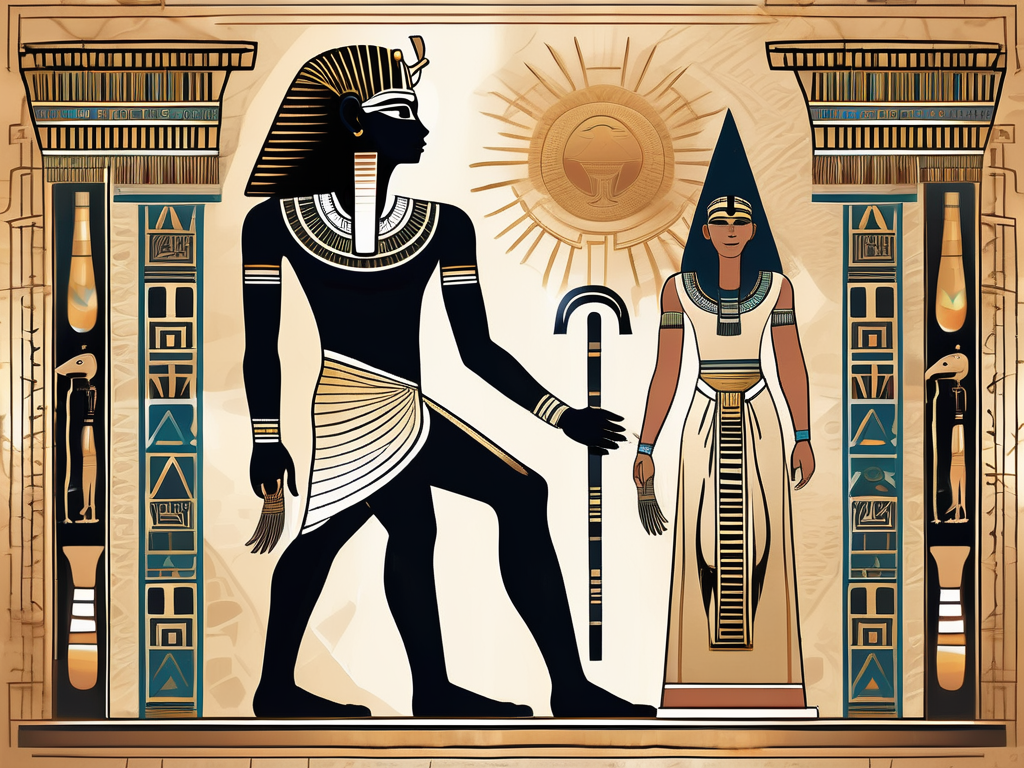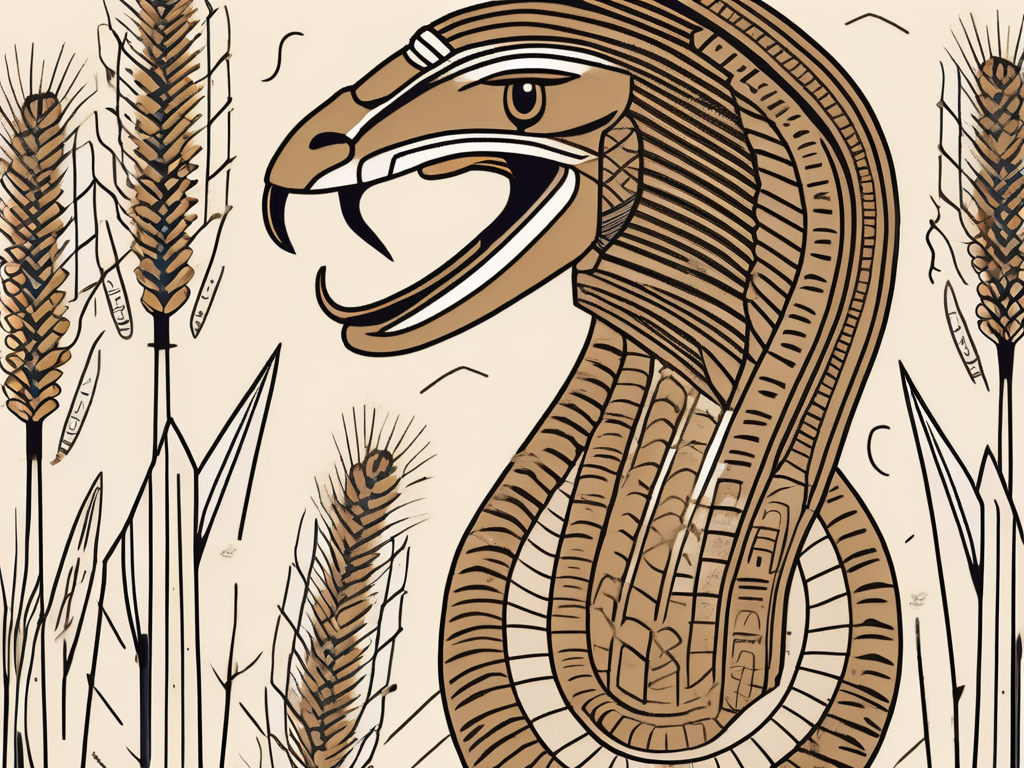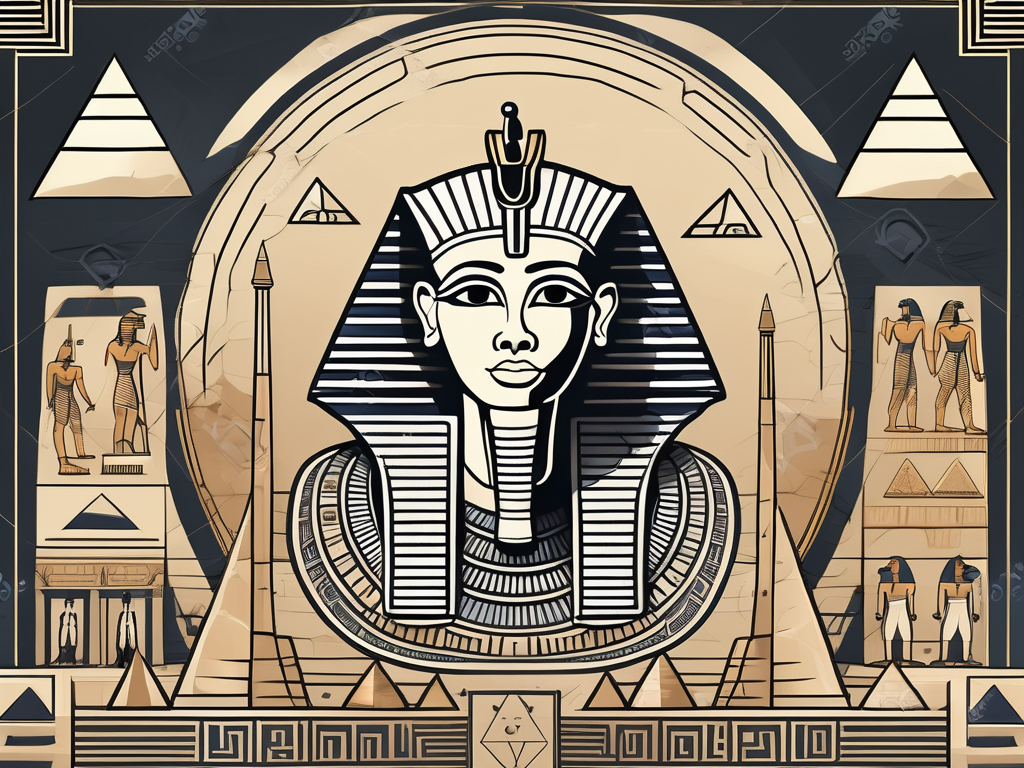Hunting has been a part of human civilization for thousands of years. From ancient times to the present day, it has been a means of survival, a form of recreation, and even a source of controversy. But what does the Bible say about hunting? Let’s explore the concept of hunting in biblical times and understand the theological perspectives associated with it.
Understanding the Concept of Hunting in Biblical Times
The Role of Hunting in Ancient Societies
In biblical times, hunting played a significant role in the daily lives of people. Society relied on hunting for sustenance, as the availability of agricultural options was limited compared to today. In many ancient societies, hunting was not only a means of survival but also a way to establish social status and provide for the community. It required skills, knowledge, and respect for the natural world.
Ancient hunters had to navigate dense forests, traverse rugged terrains, and brave harsh weather conditions in pursuit of their prey. They developed various hunting techniques and tools, such as spears, bows and arrows, and traps, to increase their chances of success. Hunting was not a solitary activity but often a communal endeavor, where groups of hunters would work together to track, corner, and capture their quarry.
Furthermore, hunting was deeply ingrained in the cultural fabric of ancient societies. It was not merely a means to an end but a sacred practice intertwined with religious beliefs and rituals. Many ancient civilizations believed that hunting was a way to connect with the divine and honor the natural world. They viewed animals as spiritual beings and respected their role in the delicate balance of life.
Biblical References to Hunting
The Bible contains several references to hunting. In the Old Testament, we find descriptions of hunting expeditions and mentions of skilled hunters who were revered for their prowess. These references serve as a window into the significance of hunting in biblical times and give us insights into how it was perceived by those living during that era.
One notable biblical figure associated with hunting is Nimrod, who is described as a “mighty hunter before the Lord” in the book of Genesis. Nimrod’s hunting prowess and leadership abilities made him a prominent figure in ancient times. His reputation as a skilled hunter and ruler has been immortalized in various ancient texts and legends.
Another biblical reference to hunting can be found in the story of Esau and Jacob. Esau, the elder twin, was a skilled hunter who enjoyed venturing into the wilderness to hunt game. His hunting skills were highly regarded, and he used them to provide food for his family. However, it was his younger brother Jacob who eventually received the birthright and blessing from their father, Isaac.
These biblical references not only highlight the importance of hunting in ancient societies but also shed light on the social dynamics and cultural significance associated with the practice. Hunting was not merely a means of survival but a way to establish one’s reputation, demonstrate strength and skill, and contribute to the well-being of the community.
Theological Perspectives on Hunting
Stewardship and Respect for God’s Creation
From a theological standpoint, hunting can be understood within the context of stewardship and respect for God’s creation. The Bible teaches that humans are called to be stewards of the Earth, taking care of its resources. It emphasizes the importance of responsible and sustainable practices that honor the natural world and the creatures within it.
When we engage in hunting, we have the opportunity to connect with nature in a profound way. It allows us to witness firsthand the intricate balance of ecosystems and the beauty of God’s creation. Hunting can serve as a reminder of our responsibility to care for the Earth and its inhabitants. By participating in ethical hunting practices, such as obtaining proper licenses, following hunting regulations, and practicing humane techniques, we demonstrate our commitment to stewardship.
Moreover, hunting can foster a deep appreciation for the food on our tables. It reminds us of the effort and skill required to provide sustenance for ourselves and our families. By actively participating in the process of acquiring food, we develop a greater understanding of the value of each meal and the resources that go into its production.
Hunting for Survival vs. Sport
Another theological consideration is the distinction between hunting for survival purposes and hunting for sport or recreation. While hunting for sustenance aligns with the principles of providing for oneself and one’s family, hunting purely for pleasure can pose ethical questions. The Bible encourages moderation and a mindset of gratitude for the provisions we receive from God.
When hunting is done for survival, it reflects the biblical principle of self-reliance and the responsibility to care for one’s own needs. In many cultures and communities, hunting has been an essential means of obtaining food and ensuring survival. It is a practice deeply rooted in the history of humanity, and when approached with reverence and respect, it can be seen as a way to honor the natural order established by God.
However, when hunting becomes solely a sport or recreational activity, it is important to examine our motivations and intentions. Engaging in hunting purely for pleasure can raise questions about the value we place on life and the ethical treatment of animals. It is crucial to approach hunting as a responsible and ethical endeavor, ensuring that we do not exploit or harm God’s creatures for our own entertainment.
Ultimately, the theological perspectives on hunting remind us of the importance of balance, respect, and gratitude. By embracing our role as stewards of the Earth, we can engage in hunting practices that honor God’s creation, provide for our needs, and foster a deeper connection with the natural world.
Biblical Characters Associated with Hunting
Hunting has been an age-old practice that has played a significant role in various cultures throughout history. In the Bible, there are several characters who are associated with hunting, each with their own unique qualities and contributions. Let’s delve deeper into the lives of two of these biblical figures: Nimrod and Esau.
Nimrod: The Mighty Hunter
One of the notable biblical characters associated with hunting is Nimrod. The book of Genesis describes him as a mighty hunter before the Lord. Nimrod’s hunting prowess symbolizes strength and dominance, placing him in a position of influence among his contemporaries.
As a mighty hunter, Nimrod’s skills extended beyond mere survival. He possessed a deep understanding of the land and its inhabitants, allowing him to track and capture elusive prey. His ability to provide sustenance for his community made him a respected figure, admired for his resourcefulness and resilience.
Moreover, Nimrod’s hunting expeditions were not solely driven by the need for food. Hunting served as a means of honing his physical and mental abilities, as well as a way to connect with nature and the divine. The act of hunting became a spiritual experience for Nimrod, allowing him to feel a profound connection with the world around him.
Esau: The Skilled Hunter
In the Book of Genesis, Esau is portrayed as a skilled hunter. Hunting was an integral part of his life, and his abilities as a hunter are highlighted in the narrative. Esau’s character provides another viewpoint on how hunting was valued and respected in biblical times.
Esau’s skills as a hunter were not only a means of survival but also a reflection of his character. He possessed a keen eye, swift reflexes, and an intimate knowledge of the wilderness. These qualities made him an exceptional hunter, capable of tracking and capturing even the most elusive prey.
However, Esau’s hunting prowess also revealed a deeper aspect of his personality. His love for the outdoors and the thrill of the chase showcased his adventurous spirit and his desire to explore the world around him. Hunting became a way for Esau to connect with his surroundings and find solace in the tranquility of nature.
Furthermore, Esau’s hunting skills were not limited to his own sustenance. He would often share his bounty with his family and community, embodying the values of generosity and communal support. His hunting expeditions became a way to foster unity and strengthen the bonds within his community.
These biblical characters, Nimrod and Esau, exemplify the significance of hunting in ancient times. Their hunting skills not only provided sustenance but also served as a means of spiritual connection, personal growth, and community building. Their stories remind us of the deep-rooted relationship between humans and the natural world, where hunting played a vital role in shaping both individual lives and society as a whole.
Ethical Considerations of Hunting in the Bible
Hunting has been a part of human existence for thousands of years, and throughout history, various cultures have developed their own ethical guidelines for engaging in this activity. In the context of the Bible, there are several principles and concepts that shed light on the ethical considerations of hunting.
The Principle of Not Causing Unnecessary Suffering
One of the fundamental teachings of the Bible is the principle of not causing unnecessary suffering to animals. This principle finds its foundation in the idea of compassion and care for all of God’s creation. It emphasizes the importance of treating animals with respect and minimizing their suffering.
When engaging in hunting, it is crucial to do so in a manner that aligns with this principle. This means taking steps to ensure that the animal being hunted does not endure unnecessary pain and suffering. Ethical hunters strive to make clean and humane kills, using proper hunting techniques and equipment to minimize suffering.
Furthermore, the principle of not causing unnecessary suffering extends beyond the moment of the kill. It also encompasses the treatment of wounded animals. Ethical hunters make every effort to track and recover wounded animals promptly, minimizing their suffering and ensuring that no animal is left to suffer needlessly.
The Concept of Fair Chase in Biblical Context
Another important concept in the ethical considerations of hunting is fair chase. Fair chase refers to the act of pursuing game animals in an ethical and sportsmanlike manner. This concept has biblical implications as well.
The Bible encourages honesty, integrity, and the respect for both the animal and the environment during the hunting process. Fair chase reflects these values, ensuring that the pursuit of game is done with honor and reverence. It emphasizes the importance of giving the animal a fair chance to escape, rather than engaging in practices that guarantee success at the expense of the animal’s well-being.
Practicing fair chase involves adhering to certain guidelines. It means not using unfair advantages, such as high-powered rifles or illegal hunting methods, that would give the hunter an unfair advantage over the animal. Instead, ethical hunters choose to challenge themselves by using appropriate equipment and techniques that level the playing field.
Additionally, fair chase also involves respecting the natural behavior and habitat of the animal. Ethical hunters take the time to study the animal’s habits, patterns, and habitat, allowing them to make informed decisions and engage in a pursuit that is both challenging and respectful of the animal’s natural instincts.
In conclusion, the ethical considerations of hunting in the Bible revolve around the principles of not causing unnecessary suffering and practicing fair chase. These principles emphasize compassion, care, and respect for all of God’s creation. Ethical hunters strive to minimize the suffering of animals and engage in a pursuit that is honorable and sportsmanlike. By adhering to these principles, hunters can ensure that their actions align with the biblical teachings and contribute to the conservation and preservation of wildlife.
The Bible’s Guidance on Eating Game Meat
Old Testament Dietary Laws and Hunting
The Old Testament contains strict dietary laws, including regulations on which animals were considered clean and suitable for consumption. While these laws don’t explicitly address hunting, they provide guidance on what types of meat were permitted to be eaten. Following these laws demonstrated obedience and reverence for God’s commandments.
New Testament Views on Consuming Game
The New Testament does not specifically address the consumption of game meat. However, it emphasizes the importance of gratitude and the freedom to eat all foods that are received with thanksgiving. This perspective suggests that as long as hunting is done responsibly and the meat is obtained legally, it can be enjoyed without guilt or condemnation.
As with many topics, the Bible does not provide a definitive answer on hunting. Instead, it offers principles and insights that guide our thinking and decision-making. It encourages us to view hunting through the lens of stewardship, respect for God’s creation, and ethical considerations. Moreover, it reminds us to be mindful of our actions and motivations when engaging in this ancient practice.
Whether you view hunting as a means of survival, a recreational pursuit, or a combination of both, it is essential to approach it with respect, gratitude, and a deep understanding of its historical and theological implications. By doing so, we can continue to enjoy the blessings that hunting provides while honoring the wisdom and teachings of the Bible.












